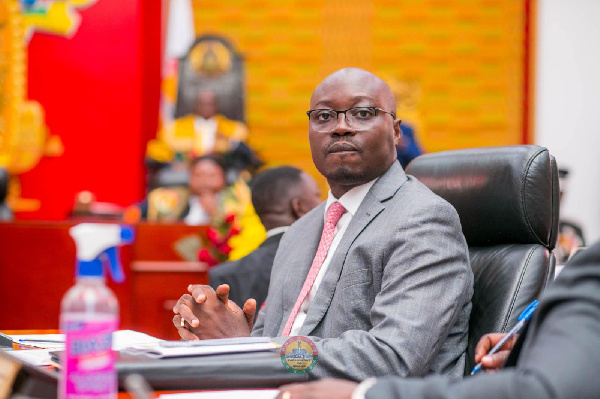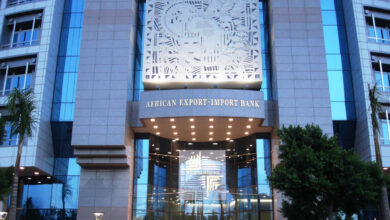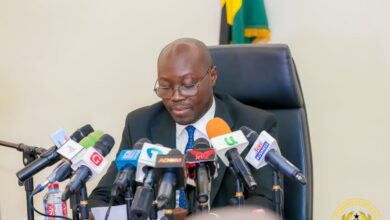Ghana Confronts Past Policy Slippages as IMF Board Approves $367M Disbursement Under ECF Programme

The International Monetary Fund (IMF) has approved Ghana’s fourth review under the $3 billion Extended Credit Facility (ECF) arrangement, unlocking a $367 million disbursement to support the country’s economic reform programme.
But behind the release lies a sobering disclosure: several reforms and policy actions across the fiscal, financial, and energy sectors were delayed, leading to a significant deterioration in programme performance by the end of 2024.
Despite strong economic growth in 2024, underpinned by vibrant activity in mining, ICT, agriculture, and construction, Ghana’s macroeconomic framework came under renewed strain in the final quarter of the year.
Pre-election fiscal slippages, a spike in inflation, and reform delays, particularly in public financial management and the energy sector—threatened to derail the government’s commitments under the IMF-supported programme.
Challenges at the End of 2024
The challenges were compounded by a large accumulation of unpaid commitments (payables) and failure to meet inflation targets, all of which weakened investor confidence and placed pressure on fiscal credibility.
The delays in reforms, particularly in energy pricing and expenditure controls, created fiscal imbalances. The country’s complicated energy subsidy regime, inefficiencies in State-Owned Enterprises (SOEs), and a lack of enforcement in financial oversight contributed to swelling public liabilities. Inflation, while easing in early 2025, surged above programme thresholds at the end of 2024, driven in part by unplanned spending and supply-side constraints.
A New Administration Steps In
Recognizing the urgency of the situation, the new administration, which assumed office following the 2024 general elections, moved swiftly with bold corrective actions to restore credibility, rebuild investor confidence, and realign the reform programme with IMF benchmarks.
According to the Fund’s statement , among the key measures taken by the new administration were:
- Passing a 2025 budget aligned with IMF objectives, targeting a primary fiscal surplus of 1.5% of GDP
- Introducing revenue-enhancing measures while streamlining non-priority expenditure
- Initiating a comprehensive audit of the end-2024 payables
- Strengthening budget execution controls to match spending with available resources
- Adjusting electricity tariffs to reflect cost recovery and reduce arrears in the energy sector
- Intensifying monetary tightening to bring inflation under sustained control
The government also advanced key elements of its public debt restructuring programme, signing a Memorandum of Understanding with the Official Creditors Committee and engaging with commercial creditors to ensure fair and comparable treatment.
Reforms Are Back on Track
The IMF acknowledged that the new authorities have taken “bold corrective actions” to steer the programme back on course. In its statement, Deputy Managing Director Bo Li praised the government’s swift response, noting that the structural reform agenda is once again on track.
“The authorities are strongly committed to restoring fiscal discipline and addressing the structural weaknesses that led to the slippages,” Bo Li said.
The Bank of Ghana (BoG) has also played a key role by tightening its monetary policy stance and rebuilding foreign exchange reserves. Efforts to contain financial sector risks were ramped up, with the central bank escalating measures at undercapitalized banks and pushing forward a recapitalization and governance reform strategy.
Outlook: Staying the Course
The IMF emphasized that Ghana’s future success hinges on staying the course of reform. Priority areas include:
- Enhancing domestic revenue mobilization
- Finalizing the reform strategy for state-owned banks
- Addressing energy sector inefficiencies and arrears
- Strengthening public financial management and expenditure controls
- Supporting the vulnerable through social safety nets during adjustment
“This programme has not been easy, but the reforms are now back on track,” said a government source familiar with the discussions. “What matters most is that the painful lessons of late 2024 are being used to build a more resilient fiscal framework.”
With this latest disbursement, Ghana has received a total of $2.3 billion under the ECF arrangement. Analysts believe that with continued discipline and political will, the country is now positioned to restore macroeconomic stability, reduce debt vulnerabilities, and reignite inclusive growth.




